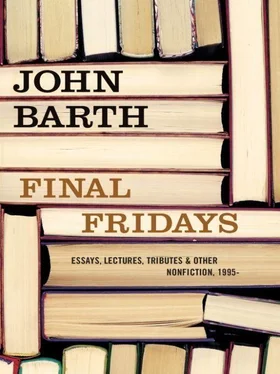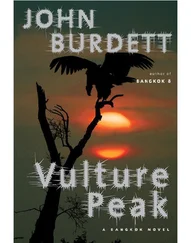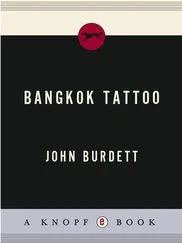7 More knowledgeable participants than myself in the University of California at Davis Calvinofest subsequently assured me that they did in fact meet, at least once, in Rome, near the end of Borges’s life, and supplied me with a handsome photograph of the pair chatting over parallel cups of coffee in the Hotel Excelsior di Roma.
My Faulkner
1 Ed. Duvall and Abadie (Jackson: University Press of Mississippi, 1999).
2 The novel Coming Soon!!! (Boston: Houghton Mifflin, 2001).
3 See the essay “Ad Lib Libraries and the Coastline Measurement Problem,” in Further Fridays.
4 E.g., in the aforementioned “Ad Lib Libraries” and the essay “ The Ocean of Story ” in Further Fridays ; likewise in “The Morning After,” farther on in this volume.
5 In the Foreword to the Doubleday Anchor edition of The Floating Opera and The End of the Road , reprinted in Further Fridays.
¿Cien Años de Qué?
1 Literatura de las Américas 1898–1998 (León: Universidad de León, Secretariado de Publicaciones, 2000).
2 The influential Spanish “Generation of [18]98” included, among other notable literary figures, Pio Baroja, Antonio Machado, and Miguel de Unamuno.
3 The late-20th-century efflorescence of Latin-American literature, of which more presently.
4 Alas, the question is now moot: Federman died in 2009.
5 New York: HarperFlamingo, 1998.
6 Already quoted in the preceding essay, “My Faulkner.”
A Window at the Pratt
1 And alas, died in 2009 without ever receiving: See my tribute to Updike farther along in this volume.
2 Indeed, in the years since, a couple of the Kerr Prize winners have placed items for publication — and the value of the award has increased to more than $60,000.
On Readings
1 See the preceding Friday-piece, “A Window at the Pratt.”
2 The afore-referred-to Coming Soon!!! , which came too late (2001) for the turn of the millennium.
3 See “The Passion Artist,” in the Tributes and Memoria section of this volume; likewise my tributes to Heller and Updike.
The End of the Word As We’ve Known It?
1 When Prophecy Fails , by Leon Festinger, Henry Riechen, and Stanley Schachter (Minneapolis: U. Minnesota Press, 1956).
2 “Largely,” but by no means entirely — as witness the international public health alarm in 2007 over an Atlanta lawyer’s managing to evade quarantine and make transatlantic flights despite having been diagnosed with drug-resistant TB.
3 The most elegant example of the quasi-electronic that I’ve seen to date is the admirable novel Love in a Dead Language , by Lee Siegel (University of Chicago Press, 1999), with its elaborately simulated “windows” and other computerish trappings.
4 See the essay “Incremental Perturbation.”
5 Also from “The State of the Art.”
6 Michael Korda, in “Out of Print,” Harper’s , April 2001.
“I’ve Lost My Place!”
1 Quoted in Thomas Flanagan’s review-essay “Western Star,” in The New York Review of Books , November 29, 2001.
The Place of “Place” in Fiction
1 Subsequently published in the Hartford Courant under the title “An Author’s Sense of Place.”
2 In his essay “The Argentine Writer and Tradition.”
Liberal Education
1 Not mentioned in what follows (because I judged it inappropriate to the occasion) is my chief reservation about the admirable St. John’s curriculum: its deployment of “tutors” in seminar-size discussion groups instead of (as at most good universities) eminent professorial authorities in a lecture-hall setting. The usual objection to the latter is that the students do more listening and note-taking than discussing; but we Hopkins undergrads did plenty of arguing and discussing in post-lecture Q&As as well as among ourselves and in follow-up seminars with Graduate Assistants — and our wrestlings with the texts were immeasurably illuminated by what we’d heard from those distinguished professors.
The Relevance of Irrelevance
1 “La rilevanza dell’irrilevanza: Scribere da americani.” And the State Department’s diplomatic phrase “explicit commentary on the events of September 11” can itself be translated into “explicit criticism of the George W. Bush presidency.”
2 In 2003, Coetzee was quite deservedly awarded the Nobel Prize for Literature, perhaps in part because of his work’s political as well as literary merits — whereas the at least equally deserving Borges and Nabokov (like Kafka, Joyce, Proust, and many another first-magnitude literary star) were never laurelled with that prize, to which they would have done more honor than it could imaginably do them.
3 For more on Scheherazade, see “The Morning After,” later in this collection.
4 Whose trespasses against the civil liberties of U.S. citizens were much further empowered by the ill-named and hastily passed “Patriot Act” of October 2001, on the heels of the 9/11 bombings.
“All Trees Are Oak Trees. .”
1 First delivered in 2003 at my alma mater, this talk was published the following year in Poets & Writers Magazine.
2 Already quoted in the preceding essay, “The Relevance of Irrelevance.”
The Inkstained Thumb
1 Cincinnati: Writers Digest Press, 2006.
I.
1 Ed. Molly McQuade (Louisville, KY: Sarabande Books, 2009).
2 “We are the stories that we tell ourselves and others about who we are,” declares Dennett in his treatise Consciousness Explained (Boston: Little, Brown & Co., 1991).
“In the Beginning, Once Upon a Time, It Was a Dark and Stormy Night”
1 More on Ms. Scheherazade in the following essay, “The Morning After.”
2 For more on Genesis, see “‘In The Beginning,’” supra.
3 And for more on this famous dictum of Horace’s, see “Incremental Perturbation,” also supra.
The Morning After
1 See the essay “Don’t Count On It: A Note on the Number of The 1001 Nights ,” in The Friday Book .
It Can Be Arranged
1 Some decades later, when I returned to Hopkins as a professor and checked my old library-stack haunts, I was relieved to find that some scoundrel had stolen that thesis: Its title refers to the poisoned garment that killed Heracles.
2 Boston: Little, Brown & Co, 1995.
Introduction to Not-Knowing
1 The first, “The Thinking Man’s Minimalist: Honoring Barthelme,” appeared in The New York Times Book Review of September 3, 1989, just a few weeks after his death; the latest—“By Barthelme Beguiled,” introducing two previously unpublished DB stories — in the October 2007 inaugural issue of the new Hopkins Review.
2 Not-Knowing , ed. Kim Herzinger (New York: Random House, 1997).
3 Some other Usual Suspects were Robert Coover, William Gaddis, William H. Gass, John Hawkes, and Thomas Pynchon.
4 For my own take on this subject, see the essay “Historical Fiction, Fictitious History, and Chesapeake Bay Blue Crabs, or, About Aboutness,” in The Friday Book.
The Passion Artist
1 NYTBR , June 21, 1998.
2 New York: New Directions, 1984.
3 From MacLeish’s poem “Not Marble Nor the Gilded Monuments”:
. . men shall remember your name as long
As lips move or breath is spent or the iron of English
Читать дальше












